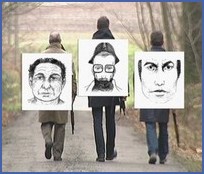En novembre 1981 à l'abbaye de Royaumont, on trouve l'
abbé Martin-Marie Lebec de la Milice de Jésus-Christ (d'obédience dominicaine)

(il faut aussi relire la liste des participants : Giulio Andreotti, Robert Close, Jacques Jonet, Jean Violet, Benoît de Bonvoisin, etc)

Il serait intéressant de savoir s'il y a un lien avec
Eric Lebec dont parle David Teacher...
https://archive.org/stream/RogueAgents4thEdition/Rogue-Agents-4th-edition_djvu.txt
(...)
(124) In correspondence with this author, former Editorial Advisor to the Vatican
Library and Secret Archives, reserve naval commander, television journalist and
writer Eric Lebec referred to his book Histoire secrete de la diplomatie uaticane
( Albin Michel, Paris 1997; https://books.google.co.uk/books?id=xDRFAQAAIAAJ&hl=fr )
which briefly notes this cooperation between Pesenti, Violet and Damman.
According to Lebec, many of the campaigns run by Violet through the Cercle and
the AESP were actually Sint Unum actions.
Lebec describes this in a 2005 interview for Zenit in which he states he had
been received by Pope Jean Paul II some ten times and had known Cardinal
Ratzinger quite some time before the latter became Pope Benedict XVI, the subject
of a 2005 book by Lebec: "I was also a militant in a discrete association "Sint Unum"
created by the French lawyer Jean Violet who worked in the Holy See's representation
at the UN. This association brought together such varied people as Antoine Pinay,
Joseph Strauss [sic], Generals Grossin and Gelhen [sic], etc. It played an important
part in Franco-German reconciliation when de Gaulle came to power ... it was above
all the creator of the "third basket" of the Helsinki Accords, with the support of
Henry Kissinger. It has now disappeared along with Jean Violet, but it was an
instrument that was appreciated from the start by Cardinal Tardini and his
successors" - see http://www.zenit.org/fr/articles/benoit-xvi-les-defis-d-un-pape-
biographie-par-eric-lebec; http://www.editionsarchipel.com/auteur/eric-lebec/.
Lebec, who may or may not be the same person as the "Pere Eric Lebec"
referred to in http://suaire-turin.fr/wp-content/uploads/2013/01/Cahier-46-5.pdf,
has been interviewed several times (including alongside prominent Front National
figure Bruno Gollnisch) by the late extreme right-wing editor and radio journalist
Serge de Beketch. De Beketch was a former editorial director in 1985-86 of National-
Hebdo, the unofficial newspaper of the Front National; his successor as editorial
director from 1986 to 1993 was the newspaper's founder in 1984, Roland Gaucher -
see http:/ / sdebeketch.com/tag/eric-lebec/; http:/ / www.france-courtoise.info/ 03/
298/page. php?id=201ir; https: / / fr.wikipedia.org/wiki/ Serge_de_Beketch; https: / / fr.
wikipedia.org/wiki/National-Hebdo; https:/ / fr.wikipedia.org/wiki/Bruno_Gollnisch;
https: / /fr.wikipedia.org/wiki/Radio_Courtoisie; http: / /www. ouest-france.fr/le-feu-
nucleaire-en-debat-lecole-maritime-772320; footnote 47.
Lebec' s book offers no details of Sint Unum beyond the sweeping and probably
secondhand claim that it lay behind the Cercle. The only primary source on Sint
Unum remains the 1970 CIA report given in Arduini; apart from Lebec, the only
other known references to Sint Unum are a passing mention in Frederic Chapier's
La CIA en France: 60 ans d'ingerence dans les affaires frangaises (Editions du Seuil,
Paris 2008, pg 296) and a brief treatment in Grofimann's Die Internationale der
Konservativen (pg 469; referenced in footnote 4) who, no doubt correctly, concludes
that "Sint Unum was nothing more than a cover name for the international "system"
of personal contacts, discussion circles and action groups set up by Violet since the
late 1940s whose threads coalesced in the Cercle from the mid-1960s on".
Grofimann also points out that the motivation for seeking American funding for
Violet's activities within the Catholic Church was the halving of BND subsidies for
"Operation Pax" following the replacement of Gehlen by Wessel in May 1968 during
the CDU/SPD Grand Coalition of 1966-69 when Brandt was Vice-Chancellor and
Foreign Minister - and Straufi was Finance Minister. When Brandt was elected as
Federal Chancellor in September 1969, the BND subsidies then ceased completely.
This termination of BND support would also affect the German section of the CIDCC,
which closed the following year, and the BND-funded Dutch-based agency, Interdoc -
see the CIOC-CIDCC-Sint Unum annex; footnote 76.
_ _ _
https://fr.zenit.org/articles/benoit-xvi-les-defis-d-un-pape-biographie-par-eric-lebec/
(...)
J’étais aussi militant d’une association discrète, « Sint Unum », créée par l’avocat français Jean Violet, qui a travaillé à la représentation du Saint-Siège à l’ONU. Cette association regroupait des gens aussi divers qu’Antoine Pinay, Joseph Strauss, les généraux Grossin et Gelhen, etc.
(...)
_ _ _
https://sdebeketch.com/tag/eric-lebec/
notamment
Libre Journal 1998-03-25
Mots-Clés: Bruno Gollnisch, Eric Lebec, François Plantey, Gregoire Celier
Une émission dont les thèmes abordés sont les suivants : revue de l’actualité, les prêtres dans le séminaire, les mondes visibles et invisibles. Invités : Bruno Gollnisch, l’Abbé Celier, Eric Lebec et François Plantey.
_ _ _
https://books.google.co.uk/books?id=xDRFAQAAIAAJ&hl=fr
Histoire secrète de la diplomatie vaticaneÉric Lebec
Editions Albin Michel, 1997 - 315 pages
Eric Lebec, qui fut conseiller des éditions de la Bibliothèque vaticane et des Archives secrètes, a écrit en observateur privilégié cette histoire de la diplomatie vaticane jusque-là méconnue. Grâce aux confidences des hommes qu'il a côtoyés à Rome, et à leurs recoupements par des archives, il lève une part du voile qui entoure ce mystérieux Etat. Avec ce document saisissant, il montre comment le Vatican, loin de se contenter d'exercer le ministère de Dieu, cède souvent à la tentation de s'immiscer dans la marche du monde. De la mort étrange de Jean-Paul 1er aux sombres affaires financières que des aventuriers en soutane conduisirent au nom de Dieu, Eric Lebec nous fait découvrir l'envers du décor. Le rôle ambigu de l'Eglise - et du pape Pie XII - dans la montée du nazisme est crûment mis en lumière. Pour la première fois, un auteur autorisé nous révèle aussi l'action souterraine de quelques hommes proches du Vatican, déterminante dans la chute du communisme. Quant à Jean-Paul II, ecclésiastique habile, homme que le sérail de la curie romaine ennuie profondément et intellectuel enragé, son personnage apparaît plus complexe que la légende ne l'affirme.
